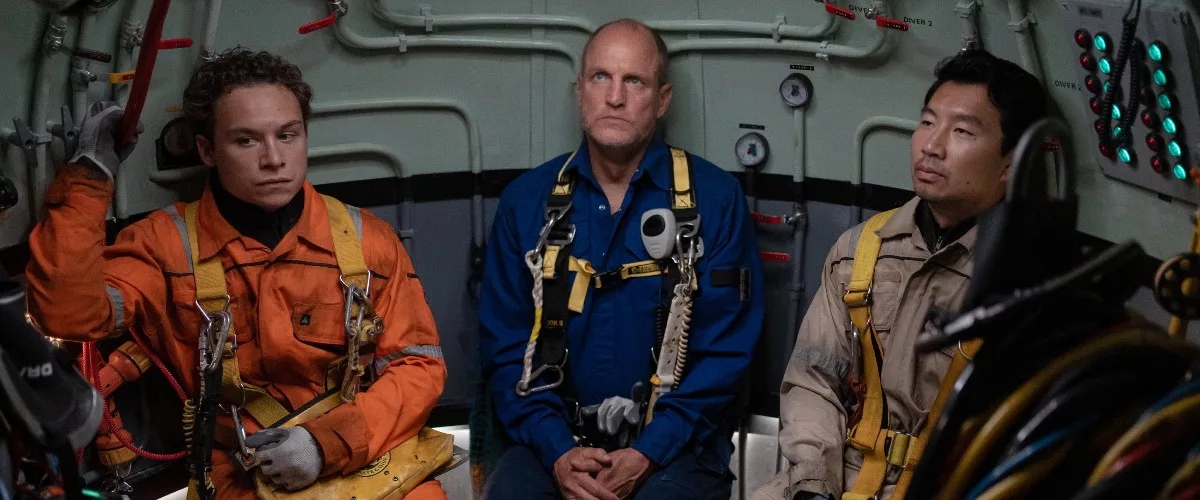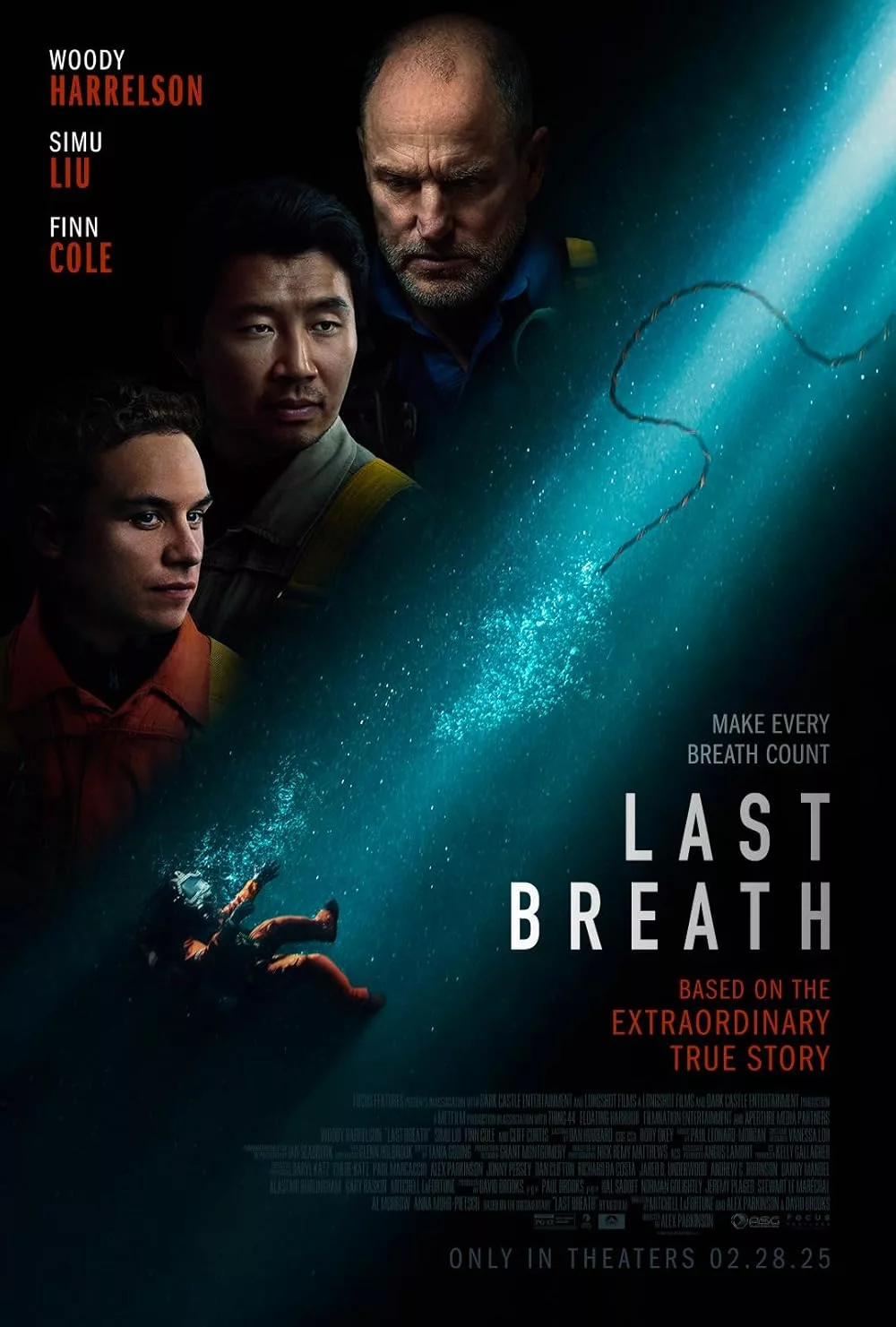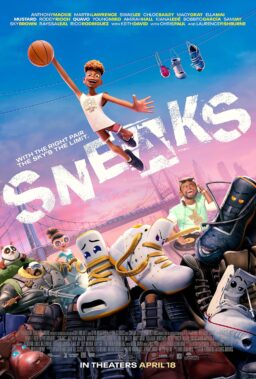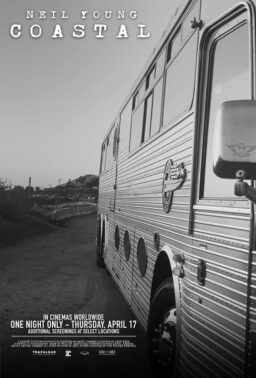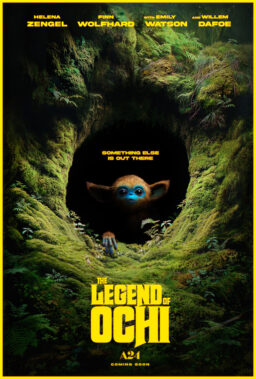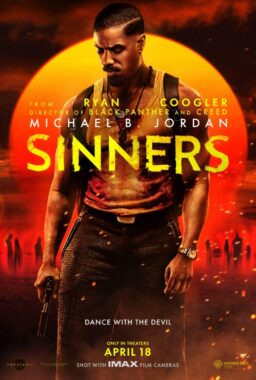The makers of the based-on-a-true-story diving rescue drama “Last Breath” deliver precisely the kind of movie you’ll likely expect from a contemporary men’s adventure melodrama. In this case, there’s some tense situational peril about a saturation diver who collapses near an oil pipeline at the bottom of the Northern Sea. There’s also some overheated dialogue exchanged by unbelievable salt-of-the-earth types who only seem human thanks to a (mostly) strong ensemble cast led by Finn Cole, Woody Harrelson, and Simu Liu. They’re especially convincing whenever their characters work their way through an emergency. The same can’t be said about any given moment where the lead protagonists plumb the depths of their emotions and only come up with bad movie dialogue.
Fans of this sort of disaster adventure might read that synopsis and imagine that what’s on offer sounds like the genre movie version of undemanding comfort food. To them, I say: I understand, truly, but not every inspiring tale of heroism can be reduced to processed cheese without losing most of its flavor. Instead of relishing the specific details of this story, you wind up enjoying its familiar pleasures and then maybe its creators’ proficient execution.
At the beginning of “Last Breath,” Chris (Cole), an inexperienced but capable diver, tries to console his anxious fiancée Morag (Bobby Rainsbury) before he leaves her for a month by comparing himself to an astronaut. Morag’s only so relieved, though Chris’s comparison quickly establishes this movie’s formulaic style. Director Alex Parkinson and his two co-writers mostly focus on pseudo-naturalistic, process-oriented action, making “Last Breath” an underwater extension of the hard science fiction sub-genre that’s come back into style thanks to hits like “Arrival,” “Interstellar,” and “The Martian.” Too bad “Last Breath” isn’t as packed with thrilling incidental details or overwhelming forward momentum.
A body is lying on its side at the start of the movie, presented through realistic underwater drone footage. “Based on a true story,” says the ensuing on-screen text. We then follow Chris and two fellow divers, gruff Dave (Liu) and schmaltzy Duncan (Harrelson), as they make what should’ve been a routine trip to the bottom of the sea. Then Chris’s umbilical tether gets snagged and imperils not only him but also the ship that supports Chris’s group and two other diving teams. Dave warns Chris that once their dive begins, the outside world doesn’t exist. Too bad that’s not true since almost every tangential flashback to Morag only winds up stalling the plot’s already slow-building momentum.
Granted, a good part of this movie’s charm comes from its unabashed corniness, as in any scene featuring Duncan, a soon-to-be-retired diving vet with a folksy line for everything. Harrelson excels in his undemanding role since Duncan’s the kind of character who gets by with soothing paternal reassurances and lots of chummy but forgettable banter. Liu’s character is also pure stock, though he’s less charming as the tight-lipped Dave, who listens to metal music while he pumps iron with his shirt off. It’s not much of a role, but he also seems a bit at sea throughout.
In this type of movie, the unsung MVPs are usually the technicians who frantically oversee the rescue mission and their concerned supervisors. In this case, that’s Mark Bonnar, who plays the worried diving supervisor, Craig. He’s helped throughout by a decent supporting cast, with central-ish roles for character actor stalwart Cliff Curtis and B-movie regular MyAnna Buring. It’s too bad that Curtis, who plays a ship’s captain, doesn’t get to do much beyond confirming or denying his subordinates’ orders. He’s very good at pursing his lips with heavy implication, though one gets the sense that he could do more if asked to.
The best parts of “Last Breath” let the situation illustrate the movie’s nature as a meathead memento mori, where tough-talking men of action grapple with their mortality. Some dialogue underscores that theme, like when Dave casually floats the idea that their jobs could be fully automated within the next decade. Thankfully, Parkinson already co-directed a documentary about this exact incident (same title, 2019), so he unsurprisingly knows how to present underwater action. He also does a fine job of integrating blown-up hand-held camerawork with surveillance camera footage both inside and around Chris and his team’s diving bell. So “Last Breath” is often tense where it counts, and that makes up for a lot.
You might get what you want from “Last Breath” if you’ve already developed a taste for string cheese. Your dad, for example, will likely be an ideal audience. He also might have his own notes, which says more about the movie and its surplus of just-fine lulls than it does about popso and his particular tastes. He may be your dad, but it won’t entirely be his fault if “Last Breath” doesn’t tide him over.

